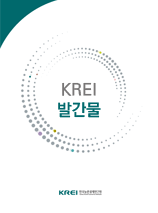
- The Current State of the Insect Industry and Direction for Fostering Policy
-

-
○ The global insect market is growing with the noteworthy potential of the insect industry, and
along with this trend, the insect market in Korea has expanded to be valued at KRW 300
billion as of 2015. The market is expected to grow further by 1.7 times from the present scale
(2015), reaching KRW 540-560 billion by 2020. In particular, the market for insects for feed
and as medicine is predicted to grow dramatically over the coming years. Nevertheless, the
awareness of the domestic insect sector as an industry is still very low, calling for proper
measures to deal with such limitations.
- The insect markets for feed, medicine, and development of insect-based biomaterials are
forecasted to drastically grow.
- The size of the pollinating insect market is also expected to expand by 33% from the current
state to KRW 57.5 billion. The market for insects as natural enemies is predicted to grow
by 33% to KRW 4-6.7 billion, thanks to an increasing interest in health and the environment
and the government policies for fostering eco-friendly farming.
○ However, the burden of investment in facilities for insect-related business and difficulties in
managing diseases undermine the willingness of farmers to produce insects. Consumers of
insects in urban regions also complain about poor accessibility to purchase insects and
hardships in rearing management.
- Producers of insects point out the problems in operating expenses, disease control techniques,
and prediction of demand for insects. Farms that use insects for pollination (for growing
vegetables and fruits) tend to show a negative perspective on the quality and effect of
insects.
- People who consume insects for the purpose of education or as pets point out the complexity
of insect rearing management, the lack of diversity of species that is limited to rhinoceros
beetle and stag beetle, and unreasonable prices.
○ It is needed to increase the income of insect producers, set the direction of policy for increasing
the satisfaction level of consumers of insects, and improve relevant laws and regulations.
- In order to foster the insect industry that is still in the early stage, it is necessary to build
a medium- and long-term policy for development of the industry, to continuously implement
government policies and invest in R&D projects, to define the role of each stakeholder of
the industry, and to make efforts to accomplish such goals.
- It is crucial to register the types of edible insects or those for medicine, and design various
promotion measures to improve the awareness of insects. The import of harmful insects
should be strictly managed, in particular, to remove any factors that weaken the potential of
the insect industry.
○ This study provides a priori approach to explain the direct and indirect effects of the production
and use of insect resources. If there is an opportunity to quantitatively analyze the effects in
the future, such a study will contribute significantly to the growth of the insect industry. -
목차
요약문
○ The global insect market is growing with the noteworthy potential of the insect industry, and
along with this trend, the insect market in Korea has expanded to be valued at KRW 300
billion as of 2015. The market is expected to grow further by 1.7 times from the present scale
(2015), reaching KRW 540-560 billion by 2020. In particular, the market for insects for feed
and as medicine is predicted to grow dramatically over the coming years. Nevertheless, the
awareness of the domestic insect sector as an industry is still very low, calling for proper
measures to deal with such limitations.
- The insect markets for feed, medicine, and development of insect-based biomaterials are
forecasted to drastically grow.
- The size of the pollinating insect market is also expected to expand by 33% from the current
state to KRW 57.5 billion. The market for insects as natural enemies is predicted to grow
by 33% to KRW 4-6.7 billion, thanks to an increasing interest in health and the environment
and the government policies for fostering eco-friendly farming.
○ However, the burden of investment in facilities for insect-related business and difficulties in
managing diseases undermine the willingness of farmers to produce insects. Consumers of
insects in urban regions also complain about poor accessibility to purchase insects and
hardships in rearing management.
- Producers of insects point out the problems in operating expenses, disease control techniques,
and prediction of demand for insects. Farms that use insects for pollination (for growing
vegetables and fruits) tend to show a negative perspective on the quality and effect of
insects.
- People who consume insects for the purpose of education or as pets point out the complexity
of insect rearing management, the lack of diversity of species that is limited to rhinoceros
beetle and stag beetle, and unreasonable prices.
○ It is needed to increase the income of insect producers, set the direction of policy for increasing
the satisfaction level of consumers of insects, and improve relevant laws and regulations.
- In order to foster the insect industry that is still in the early stage, it is necessary to build
a medium- and long-term policy for development of the industry, to continuously implement
government policies and invest in R&D projects, to define the role of each stakeholder of
the industry, and to make efforts to accomplish such goals.
- It is crucial to register the types of edible insects or those for medicine, and design various
promotion measures to improve the awareness of insects. The import of harmful insects
should be strictly managed, in particular, to remove any factors that weaken the potential of
the insect industry.
○ This study provides a priori approach to explain the direct and indirect effects of the production
and use of insect resources. If there is an opportunity to quantitatively analyze the effects in
the future, such a study will contribute significantly to the growth of the insect industry.저자정보
저자에게 문의
구매안내
KREI의 출판물은 판매 대행사 (정부간행물판매센터)와 아래 서점에서 구입 하실 수 있습니다.
판매대행사
- (주)정부간행물판매센터http://www.gpcbooks.co.kr사이트 바로가기
- 서울특별시 중구태평로 1가 25번지
- TEL 02) 394-0337, 734-6818
- FAX 02) 394-0339
판매서점
판매서점 교보문고 http://www.kyobobook.co.kr/ 영풍문고 http://www.ypbooks.co.kr/ 알라딘 http://www.aladin.co.kr/ 활용도 정보
활용도 정보 상세정보 조회 좋아요 다운로드 스크랩 SNS공유 3297 0 12 0 0 -
- Suggestions to Promote the Hometown Love Donation System
- Gouk, Seungyong
- 2022.11.25
- KREI 이슈리포트
-
- Ten Years of Korea-U.S. FTA: focusing on agri-food trade
- Kim, Kyungphil
- 2022.06.09
- KREI 이슈리포트
-
- Impacts of Ukraine-Russia Conflict on Global Grain Prices
- Kim, Jongjin
- 2022.03.31
- KREI 이슈리포트
-
- The Impacts of the COVID-19 on the Korean Agricultural Market
- Seo, Hong-Seok
- 2020.06.05
- KREI 이슈리포트
-
- 10 Agricultural Policy Issues of Korea in 2019
- Jeong, Minkook
- 2019.01.29
- KREI 이슈리포트
-
- State of Korean and Overseas Markets for Environment-Friendly Agricultural Products and Challenges 2018
- Jeong, Hakkyun; Sung, Jaehoon; Lee, Hyeonjeong
- 2018.09.12
- KREI 이슈리포트
-
- Measures to Establish the Water-Energy-Food Nexus for Agricultural Resource Management
- Sung, Jaehoon; Cho, Wonju; Lee, Hyeonjeong
- 2018.09.05
- KREI 이슈리포트
-
- Changes in the Trade of Agricultural and Livestock Products and Implications after Seven Years from the Enforcement of the Korea-EU FTA
- Song, Woojin; Lee, Hyunkeun; Myeong, Suhwan; Yoo, Juyoung
- 2018.06.29
- KREI 이슈리포트
-
- 10 Agricultural Policy Issues of Korea in 2018
- Kim, Byoungryul
- 2018.01.22
- KREI 이슈리포트
-
- Income Changes by Type of Farm Household and Implications
- Woo, Byungjoon
- 2017.11.30
- KREI 이슈리포트
-
- Income Changes by Type of Farm Household and Implications
- Woo, Byungjoon
- 2017.11.30
- KREI 이슈리포트
-
- 10 Agricultural Policy Issues of Korea in 2019
- Jeong, Minkook
- 2019.01.29
- KREI 이슈리포트
-
- 10 Agricultural Policy Issues of Korea in 2018
- Kim, Byoungryul
- 2018.01.22
- KREI 이슈리포트
-
- Job Creation Potential for the Youth and Challenges in the Agricultural Industry
- Ma, Sangjin
- 2017.01.01
- KREI 이슈리포트
-
- Implementation Plan and Implications of International Development Cooperation Projects for Agriculture in 2017
- Heo, Jang
- 2017.04.28
- KREI 이슈리포트
-
- 2016 Production Status and Market Prospect of Eco-Friendly Agricultural Products at Home and Abroad
- Jeong, Hakkyun; Lee, Hyejin; Kim, Changgil
- 2016.11.30
- KREI 이슈리포트
-
- The Impacts of the COVID-19 on the Korean Agricultural Market
- Seo, Hong-Seok
- 2020.06.05
- KREI 이슈리포트
-
- Global Spread of Saemaul Undong for Rural Development in Developing Countries
- Heo, Jang; Lee, Yoonjung
- 2016.11.30
- KREI 이슈리포트
-
- Goals and Strategies to Reduce Greenhouse Gas Emissions in the Agriculture Sector
- Jeong, Hakkyun; Kim, Changgil
- 2015.11.03
- KREI 이슈리포트
-
- 70 Years' Achievements and New Challenges of Korean Agriculture and Rural Communities
- Song, Miryung; Moon, Hanpil; Kim, Meebok; Seong, Jooin; Lim, Jieun
- 2015.09.15
- KREI 이슈리포트
의견남기기


